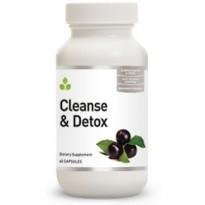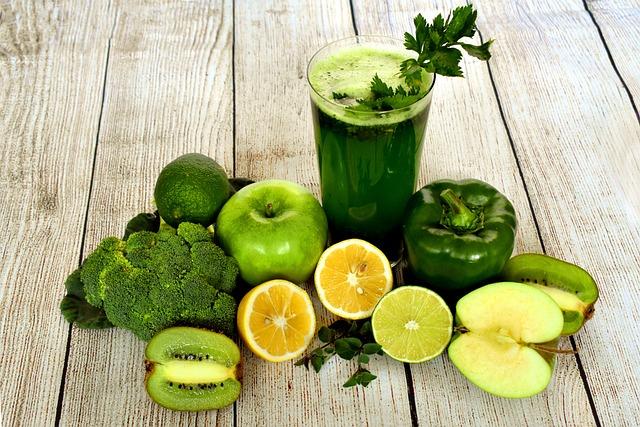In a world where wellness trends ebb and flow like the tide, detox diets have emerged as a beacon of promise, captivating the imaginations of those seeking rejuvenation and renewal. These diets, often draped in the allure of cleansing and purification, claim to rid the body of toxins and bestow a newfound vitality. But beneath the surface of this enticing narrative lies a complex web of science, skepticism, and ancient practices reimagined for the modern age. In this exploration, we unravel the truth about detox diets, navigating the fine line between myth and reality, to understand their true impact on our bodies and minds. Join us as we embark on a journey through the world of detoxification, where the quest for clarity and health meets the rigor of evidence and tradition.
Understanding the Detox Diet Phenomenon
In recent years, the idea of detox diets has taken the health and wellness world by storm, promising a cleaner, healthier body and mind. These diets often claim to rid the body of toxins, improve energy levels, and promote weight loss. While the allure of a quick fix is undeniably appealing, it’s crucial to dive deeper into what detox diets actually entail. Typically, they involve a short-term regimen that may include fasting, drinking specific juices, or consuming a limited variety of foods. The underlying concept is to give the body’s natural detoxification systems, like the liver and kidneys, a ‘break’ from processing harmful substances.
- Benefits: Proponents argue that detox diets can lead to increased energy, improved digestion, and clearer skin.
- Criticisms: Critics point out that the body is naturally equipped to eliminate toxins without external intervention and that these diets can sometimes lead to nutrient deficiencies.
- Considerations: It’s important to approach detox diets with caution and consult with healthcare professionals to ensure they align with individual health needs and goals.

Unveiling the Myths and Facts of Cleansing Regimens
In the world of wellness, detox diets have become a buzzword, promising a cleanse of the body’s toxins and a pathway to renewed health. However, separating fact from fiction can be challenging amidst the myriad of claims. Here are some common myths and truths about detox regimens:
- Myth: Detox diets are essential for eliminating toxins from the body.
- Fact: The human body is naturally equipped with organs like the liver and kidneys that efficiently detoxify and eliminate waste without the need for restrictive diets.
- Myth: All detox diets lead to weight loss.
- Fact: While some people may experience short-term weight loss due to calorie restriction, this is often temporary and not sustainable as a long-term weight management solution.
- Myth: Detoxing boosts energy levels significantly.
- Fact: Initial energy boosts may occur due to a sudden increase in nutrient-rich foods, but energy levels are more consistently sustained through balanced nutrition rather than extreme cleansing.
Understanding these aspects can help individuals make informed decisions about their health and dietary choices, focusing on sustainable and balanced nutrition rather than fleeting detox trends.

Analyzing the Health Implications of Detoxing
When considering the effects of detox diets on health, it’s essential to separate fact from fiction. While proponents claim that detoxing can rid the body of harmful toxins, scientific evidence supporting these claims is limited. Instead, many health experts argue that the body is naturally equipped with organs like the liver and kidneys that efficiently eliminate waste without the need for restrictive diets. It’s crucial to approach detox diets with caution, especially since they often involve severe calorie restriction or the exclusion of entire food groups, which can lead to nutrient deficiencies.
Potential health implications of detox diets can include:
- Short-term weight loss: Often due to water loss, not fat.
- Nutrient deficiencies: Resulting from limited food variety.
- Metabolic slowdown: Caused by prolonged calorie restriction.
- Gastrointestinal distress: Due to high intake of juices or laxatives.
Despite the allure of a quick fix, adopting a balanced diet rich in whole foods and maintaining regular physical activity remains the most sustainable path to health and wellness.

Expert Recommendations for Safe and Effective Detox Practices
When it comes to detoxing safely and effectively, experts suggest incorporating natural, whole foods rather than relying solely on juice cleanses or extreme fasting. These practices not only ensure a balanced intake of nutrients but also support your body’s inherent detoxification processes. Consider the following expert-backed strategies:
- Stay Hydrated: Water is essential for flushing out toxins. Aim to drink at least eight glasses a day.
- Incorporate Fiber: Foods like fruits, vegetables, and whole grains help in cleansing the digestive tract.
- Prioritize Sleep: Adequate rest allows your body to repair and rejuvenate, aiding natural detoxification.
- Exercise Regularly: Physical activity boosts circulation and helps expel toxins through sweat.
Moreover, it’s vital to consult with healthcare professionals before embarking on any detox regimen, especially if you have underlying health conditions. They can provide personalized advice, ensuring your detox journey is both safe and beneficial.
In Conclusion
In the ever-evolving landscape of health and wellness, detox diets continue to captivate the imaginations of many, promising a quick fix in a world that often feels overwhelming. Yet, as we’ve explored, the truth about detox diets is layered with both potential benefits and misconceptions. While they can offer a sense of renewal and a starting point for healthier habits, they are not a panacea for all that ails us.
As we navigate the myriad of choices available, it’s essential to listen to our bodies and consult with healthcare professionals who can guide us on our unique journeys. The allure of detox diets may lie in their promise of transformation, but true health and well-being are built on consistent, mindful practices that honor the complexity of our bodies.
the best detox may not come from a trendy cleanse or a restrictive regimen, but from a balanced lifestyle that embraces whole foods, regular movement, and mental well-being. So, as you consider your next step on the path to health, remember that the most profound changes often come not from radical shifts, but from steady, intentional actions.


































